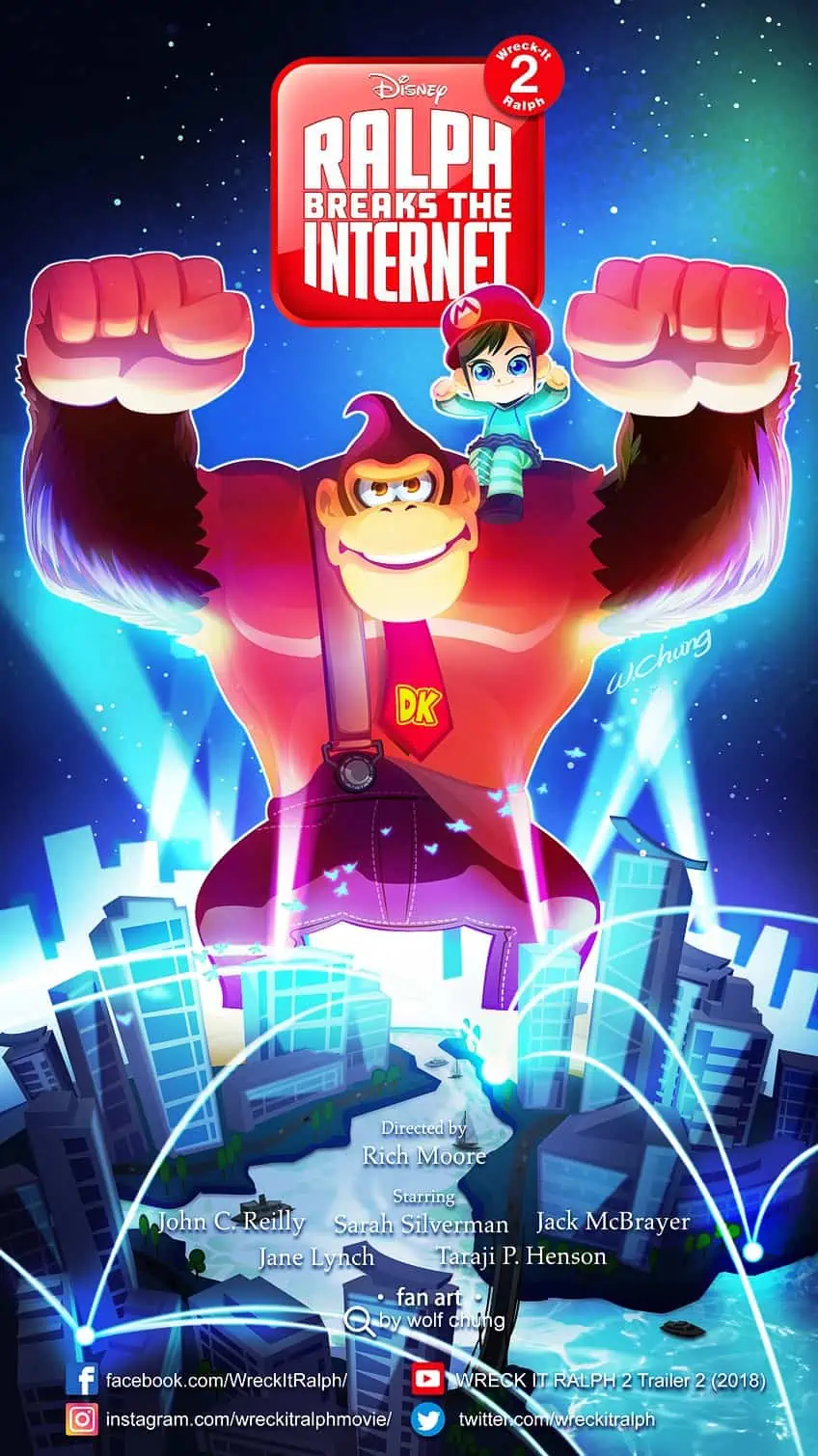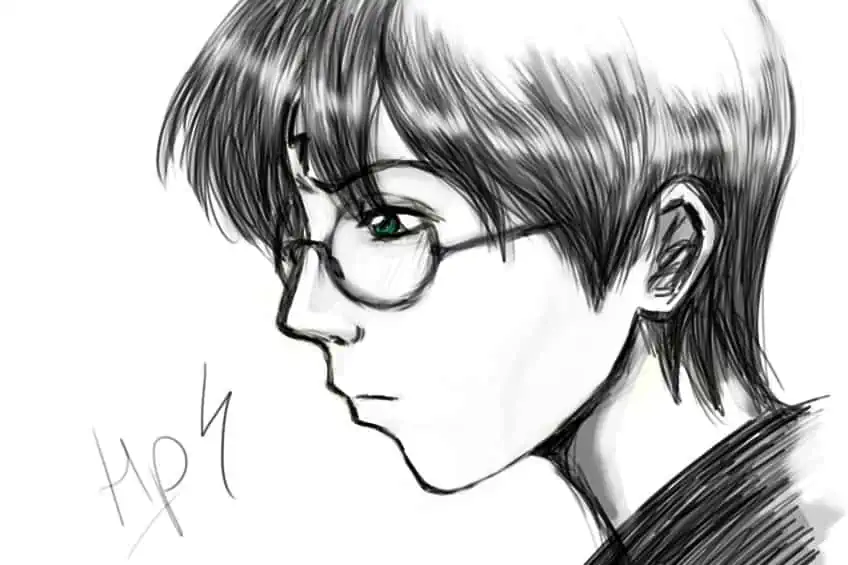Can You Sell Fan Art? – Learn How to Sell Fan Art Legally
This post may contain affiliate links. We may earn a small commission from purchases made through them, at no additional cost to you.
Everyone likes to draw their favorite characters from the movies and cartoons they grew up with as children, but can you sell fan art? Is it legal to sell fan art of copyrighted characters? In this article, we will explore these questions about selling fan art, and find out how to sell fan art legally.
Table of Contents
What Is Fan Art?
Fan art is artwork produced by admirers of a certain fictitious character, film, series, novel, or video game, usually portraying people or moments from the original creation. It is typically made as a way for enthusiasts to demonstrate their admiration and affection for a certain fanbase or community, and it can take various forms, such as sketches, paintings, digital artworks, and even mugs, pillows, and sculptures. Fan art is regularly shared on social media and fan forums, which can serve as a means for fans to interact with one another and discuss their love of a specific subculture. While it is generally made for personal pleasure rather than monetary profit, fan art can occasionally skirt the boundaries of intellectual property regulations and copyright laws, and enthusiasts should exercise caution when making and distributing their fan artwork.
 Fan art of Iron Man’s hand from Marvel Comics; Raghul shree, CC BY-SA 4.0, via Wikimedia Commons
Fan art of Iron Man’s hand from Marvel Comics; Raghul shree, CC BY-SA 4.0, via Wikimedia Commons
What Are Copyrighted Characters?
The producer of an original work, such as a fictional figure, is granted the exclusive license to copy, distribute, and exhibit that work under copyright law. This implies that people cannot use or produce infringing versions that are derivative of the character without the copyright owner’s express consent. Fictional characters from novels, films, TV series, comics, video games, and other kinds of media can be copyrighted. Famous characters such as Harry Potter, Mickey Mouse, Superman, and Mario are all well-known examples of copyrighted characters. Copyright law protects these figures to prohibit anyone else from benefiting from their unlicensed utilization and to guarantee that the owners retain control over how their figures are utilized and depicted.
It’s important that you know that not all fictitious characters are copyright protected. A specific character must be a unique design and fulfill specific requirements of creativity and originality to be eligible for copyright protection. They could also possibly be protected under trademark law if they are affiliated with a certain product or brand.
What Is a Trademark?
In the case of a copyrighted character, a trademark can be utilized to protect its commercial use. A corporation selling items featuring copyrighted characters, for instance, can register a trademark for a specific character’s appearance or name to prohibit others from using similar characters in connection with comparable products or services. By registering a trademark, the owner is able to prohibit others from benefiting from the unauthorized use of the copyrighted characters and ensure that their own goods and services are clearly recognizable to their customers.

The trademark can also be used to safeguard the character’s identity and reputation, as well as to prohibit others from misusing the character or its association with a specific product or service. However, registering a trademark does not grant extra copyright protection for the actual character. The figure and any creative works derived from it continue to be the exclusive property of the copyright holder. Yet, trademark registration can assist in preventing others from using the character in ways that may mislead customers, or that may encroach on the owner’s rights.
How Long Do Copyrights and Trademarks Last For?
The lifetime of copyright protection for imaginary characters in the United States differs according to the conditions of their production and utilization. In general, the period of copyright protection for fictitious characters has the same length that applies to other works of authorship: the creator’s life plus an additional 70 years. If the fictitious figure was produced as a work for hire, which means it was produced by a person in the course of their job or procured by a third party to be utilized in a particular work, the copyright protection lasts 95 years from the moment of its publication. Furthermore, characters developed and utilized in an ongoing series, like certain characters from comic books, could be protected by both copyright and trademark law. A fictitious character’s trademark protection might be unlimited as long as the trademark is utilized and maintained properly.
It is important to keep in mind that these are basic rules, and the lifetime of copyright might vary based on the unique circumstances of the character’s invention and utilization. Copyright protection can also be expanded under specific conditions, such as the Copyright Term Extension Act, which prolonged the length of copyright for specific works by 20 years.
Can You Sell Fan Art to Other People?
Selling fan art can be an incredibly risky business. Trying to sell copyrighted characters without the express permission of the copyright owner could potentially land you in deep trouble. The United States does not actually enforce copyright criminally, rather, it is up to the owners of the copyright to sue the person who used the images for financial gain in a federal court. If they decide not to sue you or lose the case, then nothing will happen to you, yet even just going to fight the case in court can prove to be very expensive and time-consuming.

Is it legal to sell fan art if you have permission, though? Let’s find out how to sell fan art legally and avoid all the stress and hassle of getting sued. We need to add a disclaimer that while we have done our best to ensure the accuracy of this article, the law can vary from place to place, and not every resource on the internet is 100% reliable when it comes to legal matters. If you are unsure, it is best to contact a legal consultant.
How to Sell Fan Art Legally
So, after reading all of that legal jargon, do you think selling fan art is still a viable possibility? Well, this may surprise you, but there are ways that you can try to get permission to use certain characters for your specific project or idea.
Let’s look at the best ways to do this so that you are not at risk of getting into legal trouble.
Asking for Permission
The first step is to identify who owns the copyrighted work you would like to use. There is usually a name that appears next to the little “c” surrounded by a circle (symbol for copyright) next to the character. However, If you’re thinking of creating fan art of an older character, you may need to delve a little more to ensure that the copyright hasn’t changed ownership over time. Normally, a specific company will control the rights to the copyrighted characters or any material that you wish to utilize in your art. For contact information, go to the company’s corporate website. Search for the people to contact for copyright concerns. If no one is identified, work your way up the ladder by first speaking to whoever’s number is listed, and then asking who you should speak with concerning copyrighted characters and properties.
 Fan art by Wolf Chung of the movie, Ralph Breaks the Internet; wolf chung, CC0, via Wikimedia Commons
Fan art by Wolf Chung of the movie, Ralph Breaks the Internet; wolf chung, CC0, via Wikimedia Commons
Fan Art Programs
Several large copyright holders, such as production companies and movie studios, provide fan art programs that allow artists to produce artwork based on their favorite characters within specified limitations. Check the copyright holder’s company site to determine if such a program is available and, if so, what its requirements are. Remember that a lot of these shows are notoriously tight with their limitations, especially if they are based on long-running, famous characters.
For instance, Paramount enables fans to produce Star Trek fan films of up to 15 minutes in length. Several selling platforms include brand partnerships which enable you to market fan art with the approval of the copyright owner.
Write a Letter
You can also formally request authorization for selling your fan art in a letter. Write to the copyright holder and state who you are and what it is that you wish to accomplish. It’s important that you make it very clear that you intend to sell your fan art and where you would like to sell it. At the bottom of your letter, clearly request permission to utilize their work in the creation of fan art. If you happen to have examples of the work you intend to create, you can send a few examples of it so that they can see what you’re planning. Alternatively, you can add samples of your past work so they can get a sense of the sort of art you make. Search for an address on the website of the copyright holder. You may need to submit the letter to the copyright owner’s agent.

Copyright holders will usually respond within a fair time frame. If they’ve made a counteroffer or requested a license cost, think about whether you can take it and come back to them as quickly as you can. If they give your idea the thumbs up, you’re set to go! Simply save the letter in a secure place just in case they suddenly change their minds later. The sad thing about a copyright owner declining permission after you’ve requested it is that your fan artwork is effectively dormant. You’ve now informed them about what you want to do, and are now fully aware of how they feel about it, so pleading ignorance will do you no good.
Selling Fan Art of Expired Properties
While this may prove to be a lot less convenient and time-consuming than the preceding options, it is still an alternative that will keep you out of legal trouble if you choose it. This is based on the premise that copyrights do not live forever. If an individual owns the copyright, it only lasts for 70 years after the owner has passed away. If a company owns it, the copyright lasts for 95 years from the moment it was published or 120 years in the case that it had never been published. While it may be impractical to wait around for current popular characters’ copyrights to expire, there is still the option of looking at those that have already expired or are about to do so soon.
Once the copyright has expired, these works are considered to be a part of the public domain, and can thus be used for whatever purposes members of the public see fit.
Relocate to a Country Without Copyright Laws
If you can’t convince the copyright owners to let you market your fan art and don’t want to wait seven decades or more, you can always just relocate to a place where the same copyright laws do not apply. There are currently no existing copyright laws in Eritrea, Turkmenistan, or San Marino. You won’t face any penalties or litigation if you migrate to one of these three nations and exhibit your fan art in their stores. Yet, the total population of these three nations works out to less than 10 million, which is roughly a quarter of California’s population. Additionally, there is no assurance that the consumers in these nations will even be interested in the work you are attempting to sell. To us, however, this choice does not seem like a viable option and presents more problems than solutions.

Using Legitimate Services to Sell Your Fan Art
You almost probably received a negative reply if you submitted a letter or email requesting permission for selling your artwork. Thankfully, it isn’t quite the end of the road yet, particularly if the copyright owner collaborates with a platform that allows you to sell legitimate fan art. These sites operate in a rather straightforward manner. They each have a fan art program in which they collaborate with copyright holders to permit sales of intellectual properties on their websites, and they collaborate with artists who produce such works. If the artist manages to sell a piece of fan art on the platform, it takes a certain portion of the sale and pays a percentage of royalties to the owner of the copyright. The remainder of the proceeds is then distributed to the fan artist.
If you are searching for a service like this, Redbubble is a good place to start. It is considered the most successful web fan art-selling site, featuring agreements with dozens of companies. All you have to do is register with their partner program, accept the rules, produce your fan art, and start making money.

A fan’s depiction of J.K. Rowling’s Harry Potter; Cor-Sa on DeviantArt, CC BY-SA 3.0, via Wikimedia Commons
Teepublic is another platform that lets you sell your fan art legally, but this time you put it into t-shirts, as the name suggests. As Teepublic was subsequently purchased by Redbubble, the majority of the businesses that previously collaborated with Redbubble now collaborate with Teepublic as well. Redbubble does not own Design by Humans, which is comparable to Teepublic. It also allows you to design t-shirts using your artwork and offers a percentage on each sale. Design by Humans, however, first needs to approve your designs before they can be sold as shirts on the internet, but once approved, you don’t have to concern yourself over copyright issues.
How to Get Out of Trouble
Perhaps you are reading this because you have already sold copyrighted works and now find yourself in a bit of trouble with the owner of the copyright. If a copyright owner discovers that you’re creating fan art based on their original creation, they’ll most probably issue you with a cease-and-desist letter. Go through the cease-and-desist letter to see how much leeway you have.

This letter will most likely be prepared by their lawyer and will contain a great deal of frightening and intimidating language, but don’t be alarmed. Read through the letter briefly, looking for what they are wanting you to do in response. These letters usually follow a template, so if you scroll down to the bottom, you’ll probably notice bullet points outlining what the copyright holder expects from you. If they’ve suggested an option, such as a license charge, think about whether you can afford it.
Responding to a Cease and Desist Letter
Respond to the cease and desist letter as quickly as possible. Determine how far you are willing to go to meet the requests outlined in the letter, and then begin working on your reply. You can employ an attorney if you choose, but you are not obliged to do so at this juncture. Merely notify them that you have received their letter and go from there. Inform the copyright owner that you’ve chosen to refrain from selling your fan art any more, and that ought to be the last of it – unless they demand money for the pieces that you have already sold.
If you honestly feel that your art does not infringe on their copyright, you may always argue your point. If you’re going to pursue this path, though, it’s typically wise to consult with an attorney beforehand. Keep in mind that you’re most likely sending this letter to a highly specialized copyright attorney.
Negotiation
You cannot utilize copyrighted material without the owner’s consent; but, this does not prohibit you from negotiating for authorization after the fact. If your fan art has become well-known and has a large fan base, you may be capable of paying a licensing fee to the owner of the copyright. Many copyright holders value fan art and may even consider collaborating with you. However, the owner has already said that he is unhappy with your use of his copyrighted property, therefore expect to negotiate a license price. If you can’t afford that, your fan art endeavor may be done for. This approach is not very likely to be successful with the biggest and most powerful copyright holders, such as Disney. Sadly, because they primarily negotiate multi-million dollar contracts with huge corporations and distributors, they are unlikely to negotiate license rights with an unknown artist such as yourself.

You Don’t Even Need to Sell Copyrighted Pieces to Get Sued
If the original artist believes that your use of their artwork is unlawful and is hindering them from earning additional sales, they may decide to take legal action. For example, if you distribute your fan art in huge quantities without any charge or put it on social media, you could jeopardize the actual creator’s ability to profit from their work. If you would prefer to play it safe and stay on the right side of the law, you should avoid selling and distributing your fan art, even if the copyright owner does not appear to be concerned with suing anyone who does. They could change their mind at any time, suddenly leaving you in an unexpected and awkward situation.
That completes our suggestion on how to sell fan art legally. Selling fan art can definitely be a risky business, but as we have discovered, there are ways that you can make fan art of copyrighted characters if you are willing to follow the necessary steps. You can try applying for permission directly from the copyright owner, or you can wait until the copyright has expired. Alternatively, you can join one of the legitimate sites that collaborate with prominent companies that own the majority of popular intellectual properties.
Frequently Asked Questions
Can You Sell Fan Art?
That all depends on how you choose to sell your fan art. You are not allowed to sell works based on existing copyrighted characters without first getting the express consent of the person who holds the copyright for that specific character. There are ways to try and get their permission, such as trying to write a letter or emailing them. There are also often programs available that are run by the corporations that own the intellectual properties. However, your best bet is to look at a legal and legitimate site that works in partnership with the copyright owners and offers you a percentage of the fan artwork that you sell on their platforms.
Is It Legal to Sell Fan Art?
It is only legal if you live in a country that does not have copyright laws. However, if you do live in a country with these laws, then you will need permission from the copyright owner. Consider trying online services such as Redbubble rather, which are legitimate sites that handle the copyright for you.
In 2005, Charlene completed her wellness degrees in therapeutic aromatherapy and reflexology at the International School of Reflexology and Meridian Therapy. She worked for a company offering corporate wellness programs for several years before opening her own therapy practice. In 2015, she was asked by a digital marketer friend to join her company as a content creator, and it was here that she discovered her enthusiasm for writing. Since entering the world of content creation, she has gained a lot of experience over the years writing about various topics such as beauty, health, wellness, travel, crafting, and much more. Due to various circumstances, she had to give up her therapy practice and now works as a freelance writer. Since she is a very creative person and as a balance to writing likes to be active in various areas of art and crafts, the activity at acrylgiessen.com is perfect for her to contribute their knowledge and experience in various creative topics.
Learn more about Charlene Lewis and about us.







